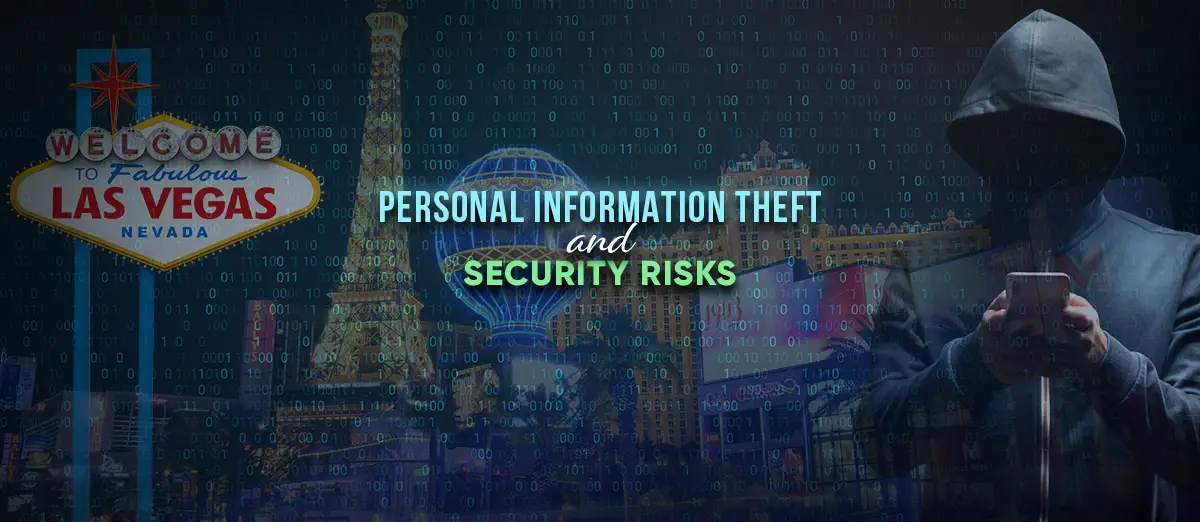R. Paul Wilson On: Protecting Your Personal Information

Online gambling is mostly a safe practice if we limit our play to reputable sites and reliable, proven locations, and while there are many tricks and traps out there to explore, I recently stumbled upon an unexpected source of concern for those who travel to play IRL. I’ve explored this topic in the past, but in the last few years, things have changed both for better and for worse.
The subject is dating apps, but don’t turn the page if you never use them; as I recently discovered, they can present dangers even to those who have never logged into one. It may seem odd to discuss this here, but as gamblers, we are exposed to unusual dangers, and I recently discovered that these apps represent a very real security concern for anyone who travels and has access to money (cash or otherwise).
On a recent trip to the famous Las Vegas Strip, a friend opened Tinder to explore the local options for dates and happened to remark that he was being careful about what he said and what he revealed on his profile. This sparked my curiosity, so he explained that - especially in Las Vegas - dating apps were being used for OSint by thieves and that he - an expert in this field - was certain they were at least partly responsible for the increase in room thefts, muggings and other serious crimes in Sin City.
The Power of Open Source Intelligence in the Digital Age
What is OSint? In the world of information security, it means “Open Source Intelligence” - data publicly available to those able to look in the right places, and while spies, security agencies and scammers have successfully used such data for centuries, modern information security culture has given it a name and elevated the process thanks to social media, technology and a growing lack of privacy (and decorum).
I’m not here to discuss how governments and corporations delve deeper into our lives, but we should all be aware that information about each of us is floating around and increasingly easy to find without the need to hack into a CIA database. Changes in culture often follow changes in technology, as do shifts in our behavior, and I think it’s fair to say that we are all guilty of over-sharing personal information online under a variety of circumstances.
Those social media surveys that promise to tell you what your spirit animal is or what the stars foretell? The questions asked by those seemingly inane diversions are sometimes - maybe often - perhaps ALWAYS - designed to build a profile about you that can be leveraged for marketing and advertising purposes or psychological profiling, and I know several examples where volunteered information helped crack passwords in a fraction of the time by narrowing possible options considerably.
This last part is important and impacts online gamblers especially, so we’ll come back to that another time.
By dressing up a profiling procedure as a game, it’s remarkably easy to collect a lot of useful data over time. For one client, I designed a fun game where people could learn about themselves through a series of puzzles and challenges, but each level required the player to input new information about themselves until the “game” had a worrying amount of detail that most smart people would never share with a stranger yet give it up easily over time and with a little misdirection.
Navigating the Pitfalls of Dating Apps
Dating apps collect essential information for marketing, targeting and security reasons. Some go a little further to ensure users are who they say they are (yet consistently fail to do so), but there are multiple personal security concerns on any platform where the goal is to put strangers together.
It starts with your profile, where you can choose how much to share with prospective partners while examining several platforms. I was shocked at the amount of useful information people volunteered, and even their choice of photographs often exposed data people would be wise to protect from complete strangers. Beyond that, it’s incredibly easy to tease specific details from someone during texts, phone calls or video calls, and this process is where many victims have been compromised.
People who travel - single or otherwise - often turn to dating apps to see who might be interested in meeting and ‘dating’ during their trip. Not a dazzling insight on my part; most women who use dating services are well aware that travelers do this and quickly learn to filter out any ships that intend to pass in the night (unless that’s what they are looking for), but at some point, other parties came to realize there was a potential opportunity to prey on these visitors.
Prostitution would seem the obvious contender, but lately, there’s an increasing likelihood that thieves, muggers and other criminals are using these platforms to profile and select potential victims.
What I’m hearing is that there is an emerging correlation between dating apps and victims in Las Vegas, London and (most recently) Paris and Madrid. If you look at crime statistics in Las Vegas, you’ll see a rise in hotel robberies, muggings and other forms of theft that just ten years ago were incredibly rare. It seems that victims were profiled online to determine if they might have valuables and cash worth stealing and, in multiple cases, willingly revealed their real name, their hotel and even their room numbers to someone in the hope of securing a date.
This means criminals have been targeting travelers with a method many victims will deny using, so the number of crimes connected to these apps is difficult to determine. Nevertheless, it’s easy to see the potential dangers of over-sharing details online.
The Broader Implications of Online Threats
This phenomenon is not limited to Las Vegas, and you can be sure that if it’s happening here, it’s happening anywhere moneyed visitors can be identified then tricked into a variety of compromising situations. I’m digging deeper into this so I can talk specifics at a later date, but for right now, let’s be aware that any scenario where you might reveal details about yourself, your activities (especially gambling) and your location is open to abuse and that dating apps bring their own Trojan horse loaded with psychological dangers.
Many will claim, “I knew this” or “I would never fall for that!” but the fact these apps are being connected to real-world crimes - many violent - means we should all take a moment to check ourselves when interacting with strangers - no matter what the desired outcome!
But there’s another issue.
What if you never use these apps? Surely none of this applies to you?
Not necessarily.
I know of at least one string of robberies connected to popular gamblers in Nevada who were compromised by a player introducing other players to someone they met online. That person then used this access to gain hotel, parking and personal information and to know when victims would be playing or socializing and whose room would be worth breaking into!
Of course, when four people at one poker table get robbed, there’s bound to be a connection, and in that case, the culprit was soon identified and her associates rounded up, but the fact they employed this strategy tells me smarter criminals are learning to swipe right.
Final Thoughts and the Lesson
To mitigate risks, it’s crucial for individuals to limit the personal information they share on dating apps and to be aware of each app’s privacy settings. Additionally, use strong, unique passwords and be cautious about sharing personal information to help protect from most potential threats. Basically, be careful online with anyone you don’t know, even if they come with someone you might trust, but even with friends. Be aware that smart scammers use victims to gain access to richer games.
In my next article, we’ll see how online players can be targeted to break into playing accounts or steal bank details using classic con game psychology.





Review this Blog
Leave a Comment
User Comments
comments for R. Paul Wilson On: Protecting Your Personal Information